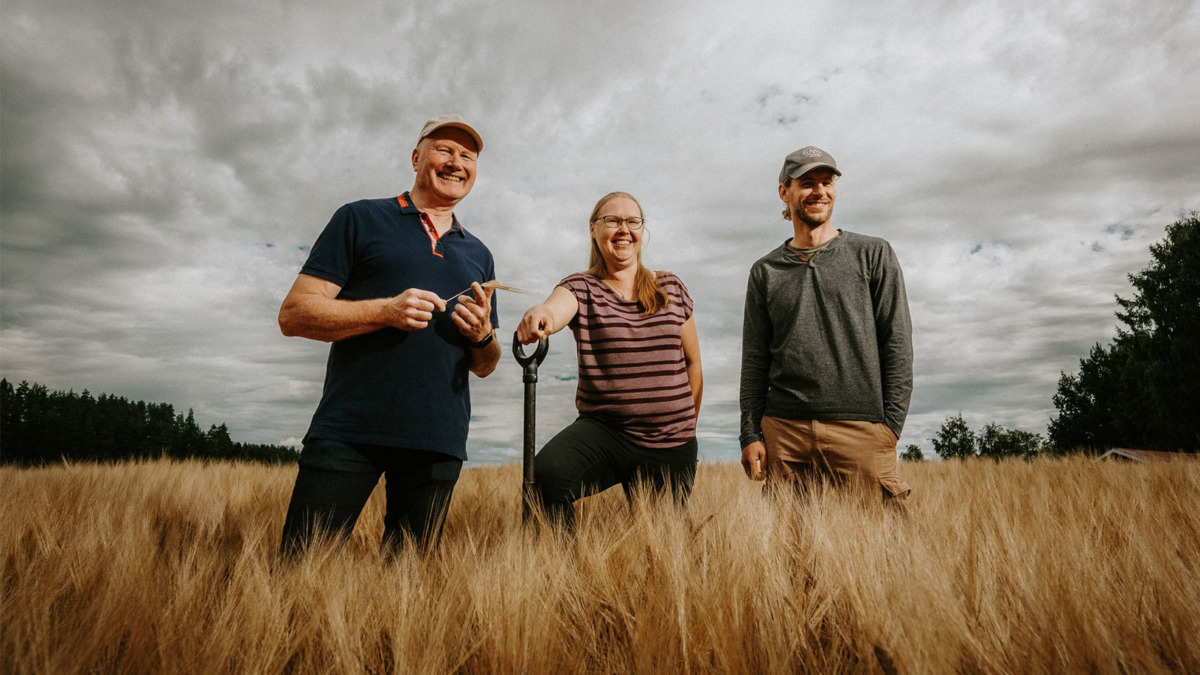Sinebrychoff continues to protect the Baltic Sea with its third Commitment and shows direction as a pioneer of regenerative agriculture in the brewing industry
The central theme of Sinebrychoff’s third Baltic Sea Commitment is regenerative agriculture with strong links to our surface waters and the Baltic Sea. Sinebrychoff aims to remain a pioneer of regenerative agriculture in the brewing industry.

With its third commitment to the Baltic Sea, Sinebrychoff implements the sustainability targets published by its parent company Carlsberg in 2022, which aim towards zero emissions and beyond. In its goals, the company committed that by 2030, 30% of the malting barley it buys will be produced according to the principles of regenerative agriculture. By 2040, the figure should be 100%. These targets also apply to Sinebrychoff.
Regenerative agriculture protects the Baltic Sea
Regenerative farming curbs climate change and continuously improves the state of the environment in connection with food production. Regenerative farming methods improve the growth condition of the soil so that carbon is stored from the atmosphere back to the ground. A healthy soil also retains nutrients and prevents them from flowing into the Baltic Sea and causing eutrophication. It also promotes biodiversity.
“We are especially happy about the long-term work Sinebrychoff has done to protect the Baltic Sea since 2014. The brewery already brought the first Baltic Sea-friendly Christmas beer to the market in 2016, and in 2021–2022, the malted barley for the KOFF Christmas beer came from farms that cultivate regeneratively. In each of Sinebrychoff’s engagements, the level of ambition has risen even further” says the CEO of BSAG Laura Höijer.
In its latest commitment, Sinebrychoff focuses on promoting regenerative agriculture in its operations even more widely. For this purpose it forms a dedicated team of experts consisting of e.g. from people in sustainable development, procurement, production and communications. In addition, the company trains its employees on the principles of regenerative farming. Sinebrychoff will continue the production of Christmas beer from farms that farm regeneratively and will explore expanding the concept to other products. As a company that manufactures soft drinks, Sinebrychoff also learns about the possibilities of regenerative farming methods in sugar beet cultivation.
Farmer collaboration and circular economy
”In order to reach our ambitions, we need wide-ranging cooperation between different actors and a dialogue, above all with farmers, about the methods of regenerative farming. To achieve this, we cooperate with BSAG and other important stakeholders by for an example organizing trainings on regenerative farming”, says Corporate Affairs Director Marja-Liisa Weckström from Sinebrychoff.
Sinebrychoff is also investigating how the recycling of nutrients in accordance with the principles of regenerative agriculture and the circular economy could be taken one step further: the surplus mash produced as a by-product of beer production is currently delivered to livestock farms as feed, but in an ideal situation, livestock farms and malt barley farmers would also live together in a circular economy. In this way, the nutrients would be put to beneficial use, and the environment would be saved from additional load. Recycling livestock manure would also promote biodiversity.
The brewery also commits to improving the sustainable use of water in its own production and the water efficiency of beverage production in accordance with the Alliance for Water Stewardship level it has achieved. In connection with the traditional Nicolas Sinebrychoff Challenge sailing competitions, Sinebrychoff highlights the importance of protecting the Baltic Sea and the company’s efforts for the Baltic Sea.
For more information:
Sinebrychoff
Communications Manager Timo Mikkola, timo.mikkola@sff.fi